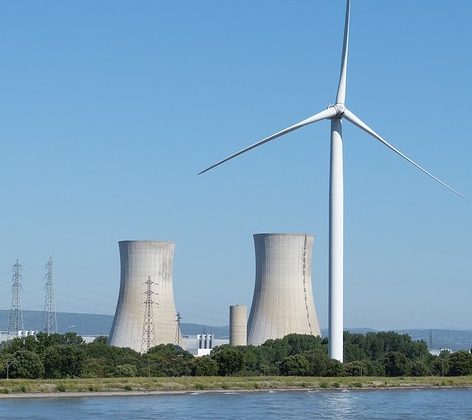Lord Howell
Lord David Howell, Chairman of the Advisory Board of Crystol Energy, comments on Hinckley Point C nuclear power project at the Windsor Energy Group Forum on Small Modular Reactors. The discussion took place at the House of Lords on Thursday, November 23rd 2017.
“MPs have now said it. The National Audit Office has said it. Distinguished and expert commentators have now said it (Nick Butler, Financial Times; Alistair Osborne, Times; Jeremy Warner, Daily Telegraph). Senior figures in both the UK and France have said it repeatedly – the giant Hinkley Point C nuclear project is taking our energy policy and our energy future in a wrong and damaging direction.
Far from being value for money in any sense, it is very low value for an enormous amount of money, punishing the British consumer for decades to come.
And far from being the flagship project for the new British civil nuclear renaissance, it is endangering the entire fleet renewal programme.
And far from securing Britain’s future electricity supply it presents a direct threat to future power supplies.
The thousands of jobs already involved must be secured as the present project falters, but this must be done by preparing to build something different at the Hinkley Point site. The obvious way forward is through the sequential construction of a new series of smaller ‘modular’ reactors of the kind now being developed by Rolls Royce in the UK, and also in China and in America.”

Speaking in the House of Lords debate on future electricity supplies last July, Lord Howell said:
“What is the way forward? I think it lies in the direction of what the Chinese authorities are now calling the “nimble dragon” technology. This is the very rapid development—much more rapid than over here or in America—of small, modular reactors, which the noble Lords, Lord Darling and Lord Hollick, mentioned. The Chinese have installed a working one, I think, on the island of Hainan, and are developing this whole concept very rapidly indeed. This is the Linglong technology, as opposed to the Hualong technology, which they were talking about for Bradwell. They are also developing, as are other countries, technologies for using the molten salt methods, which provide much more passive cooling and much less radioactive and much safer forms of nuclear energy generation. They are safer and quicker and they may be, although this is yet to be proven, cheaper.
What we are talking about are rows of smaller, 300 megawatt plants—so you would need six, seven, eight, nine or even 10 of those to match the gigantic 3.2 gigawatt plant that was planned for Hinkley. But I would not be surprised if the Chinese begin to see these smaller, modular reactors as an alternative to the whole EDF Hinkley project, in which obviously they have declining confidence. As I say, there would need to be a series of them. They can be built in the factory. A learning curve takes place but this is now well within reach, and certainly within reach in the timescale of between now and 2027.
That is the new point which I thought I would add to our discussion: we may yet be saved by the farsightedness and perception of the Chinese, whom we must not let down and we must work with to develop an alternative to the Hinkley dinosaur. Nuclear power, which I have always been very supportive of, offers two prizes: security of supply and low-carbon electricity, which is good; as well as, of course, the supply of non-intermittent electricity. The question is: how much should we pay for it? At Hinkley the question was never properly asked and has certainly never been answered. It should be, rather quickly.”
But now both Parliament and Whitehall authorities have given their answer, loud and clear. It should be heeded.
*The Windsor Energy Group is a sister organisation to Access for Women in Energy








